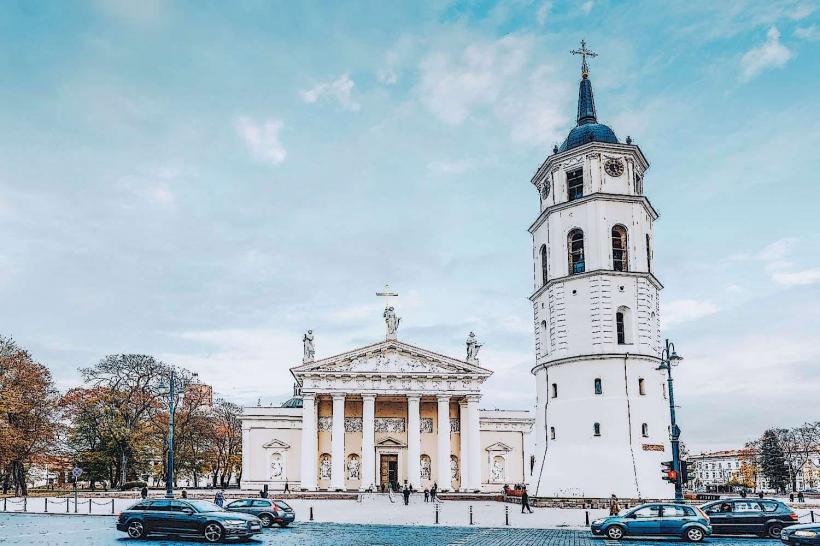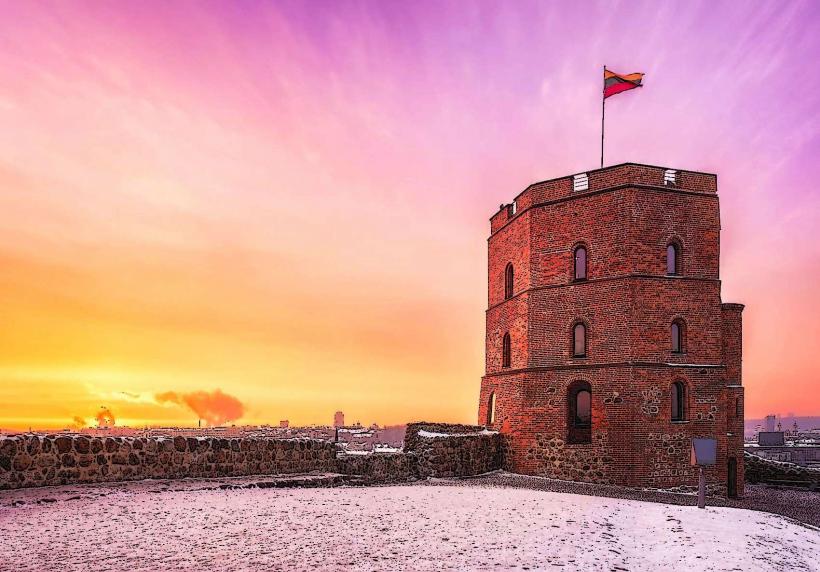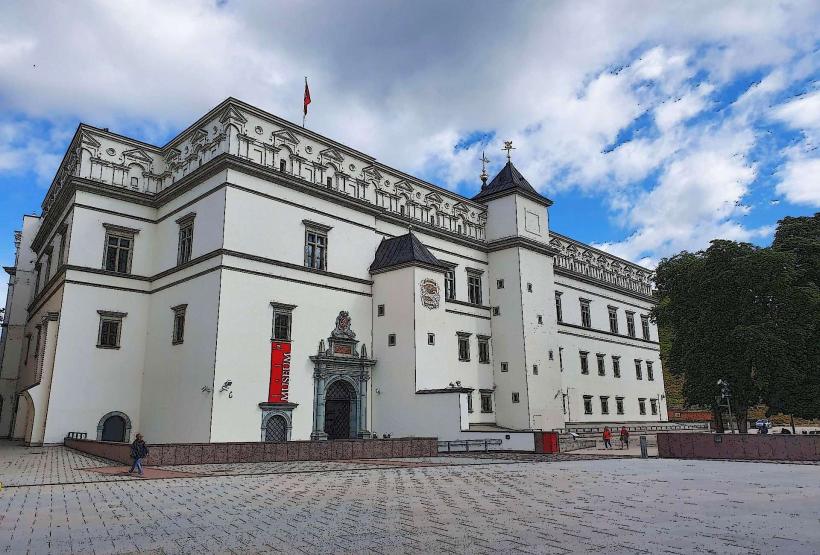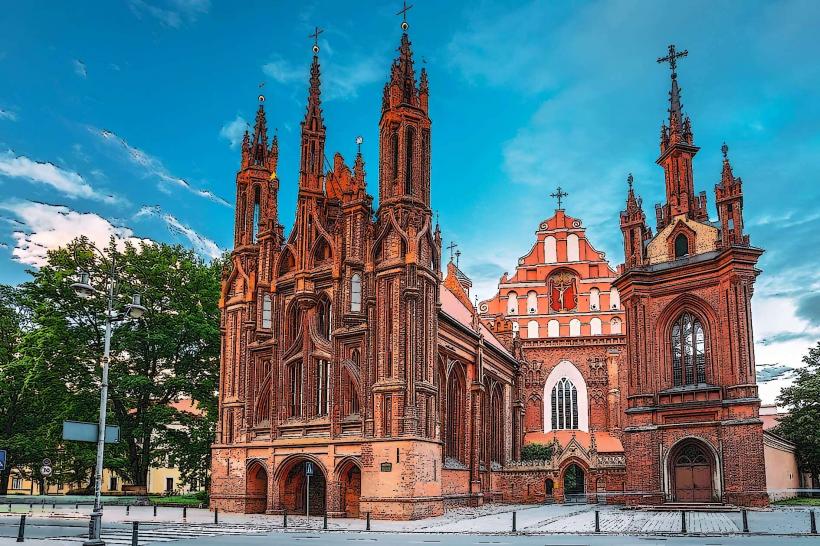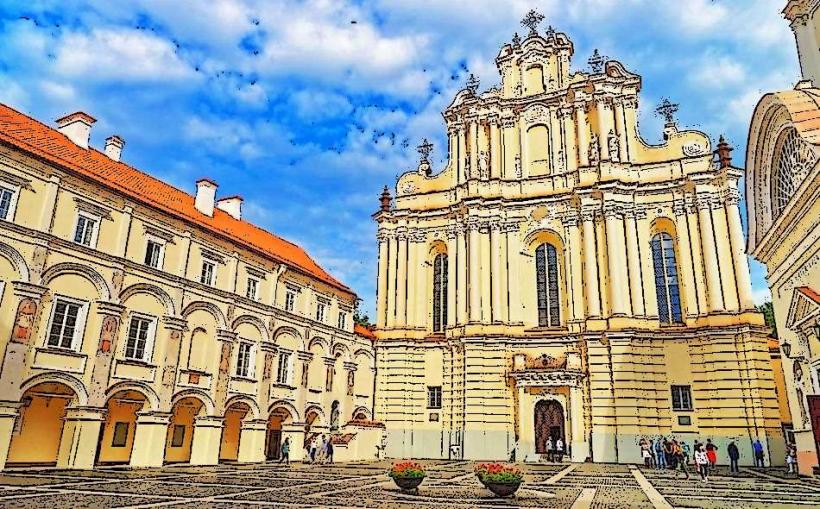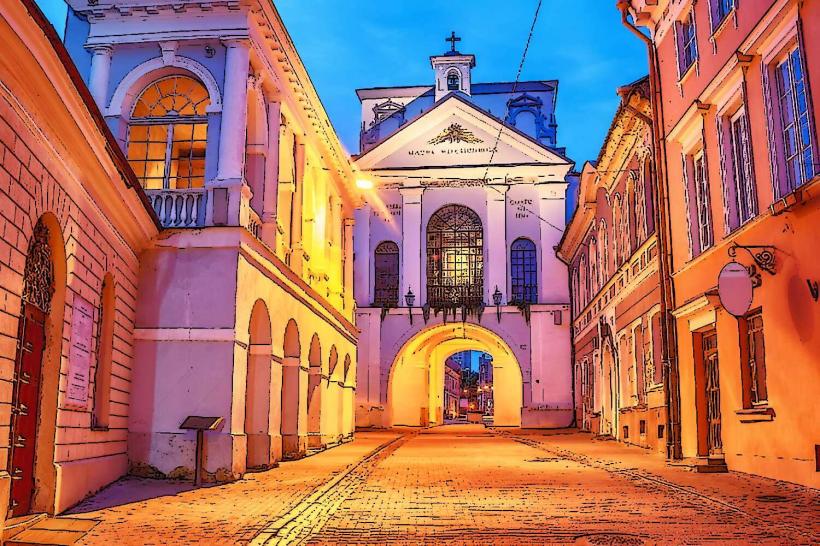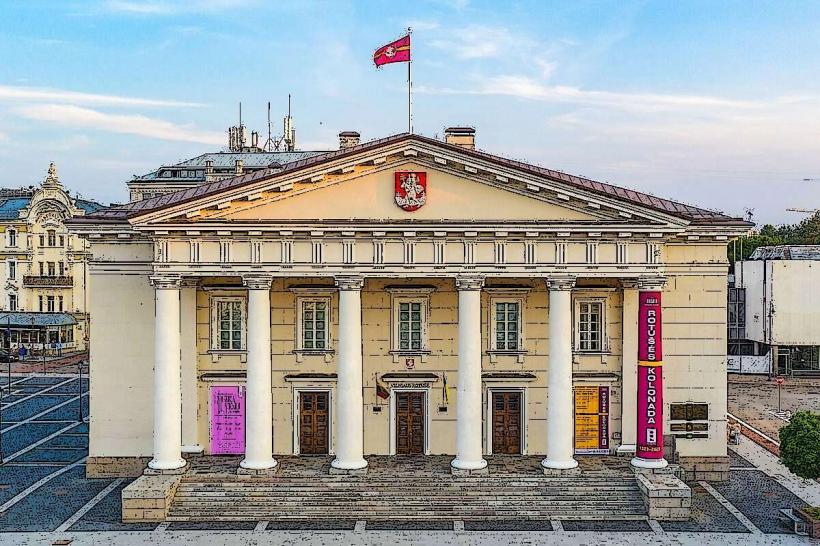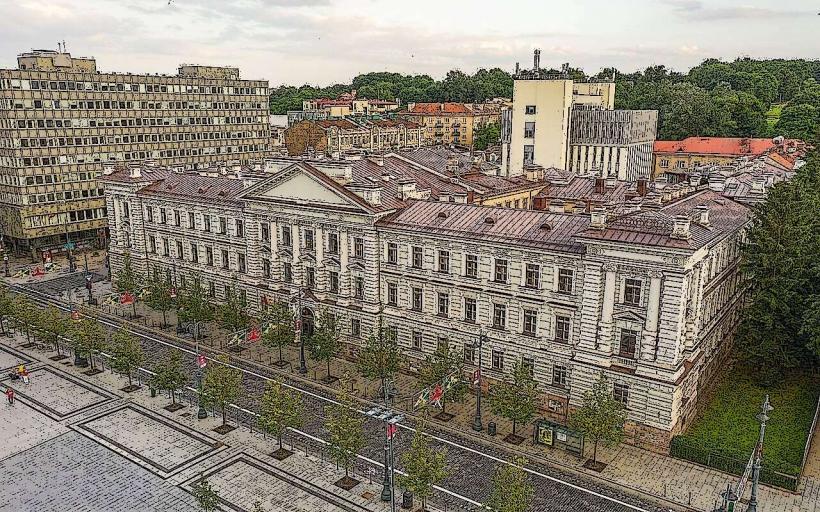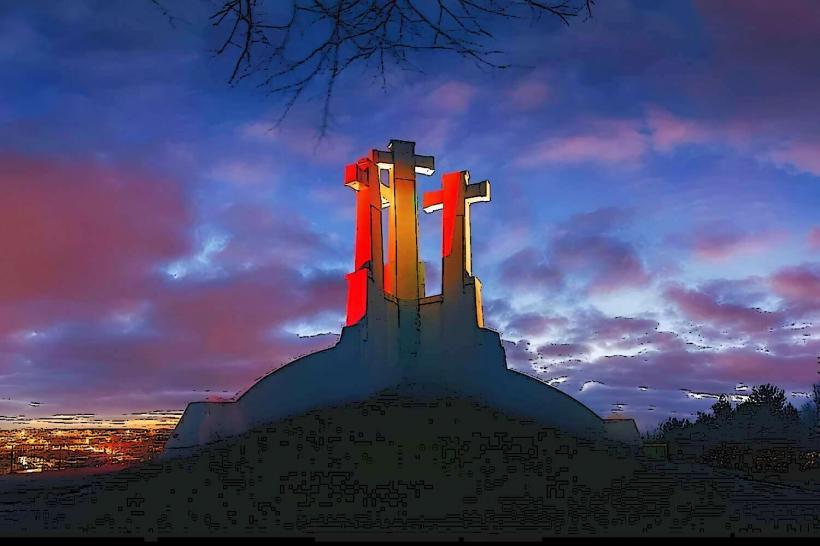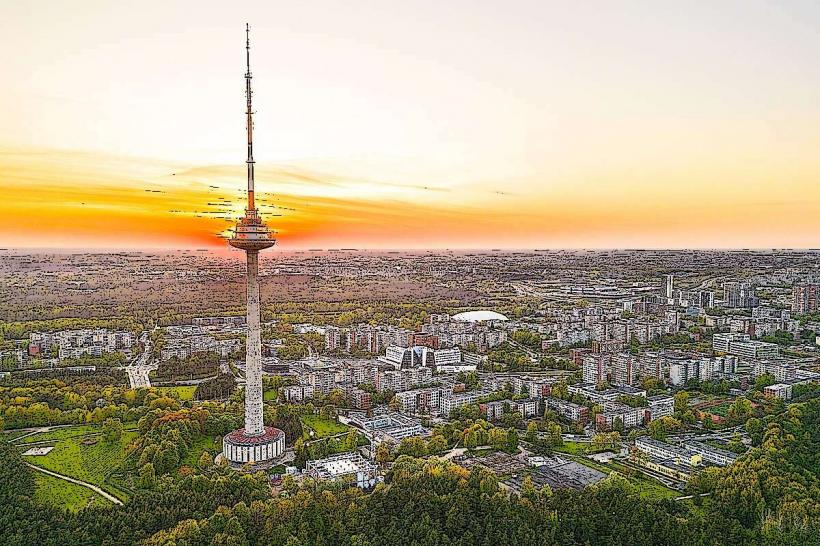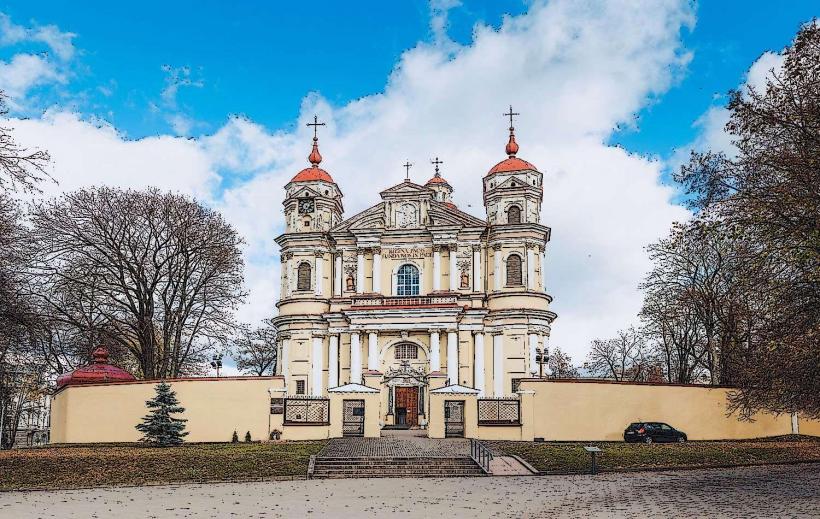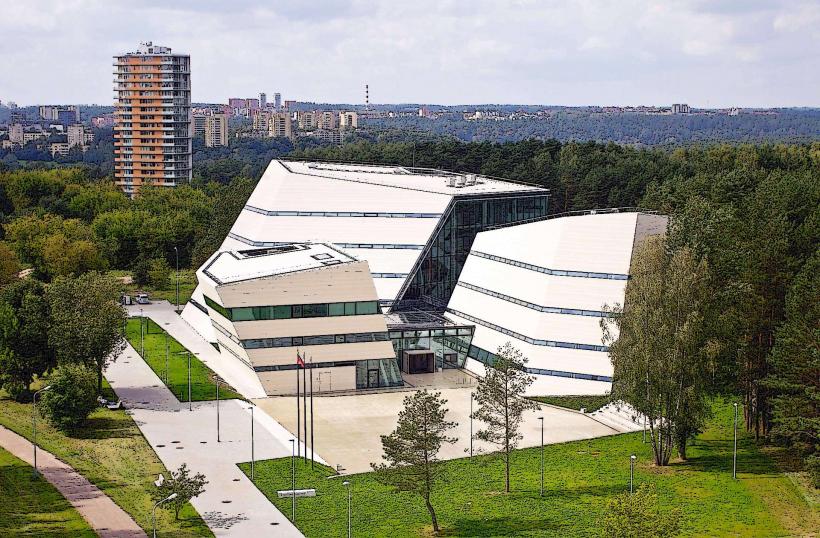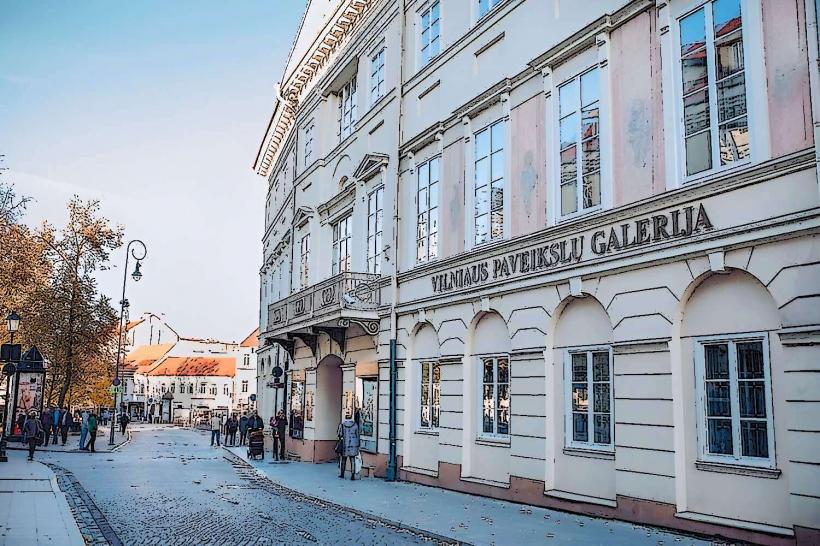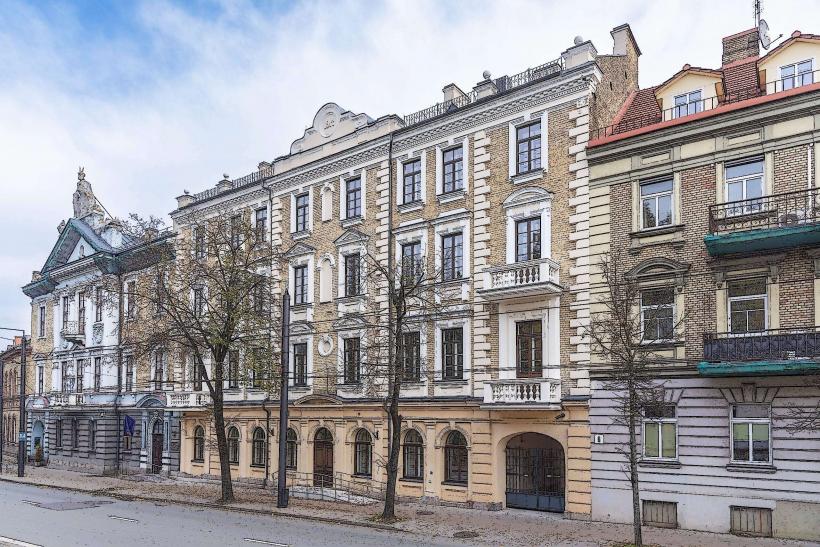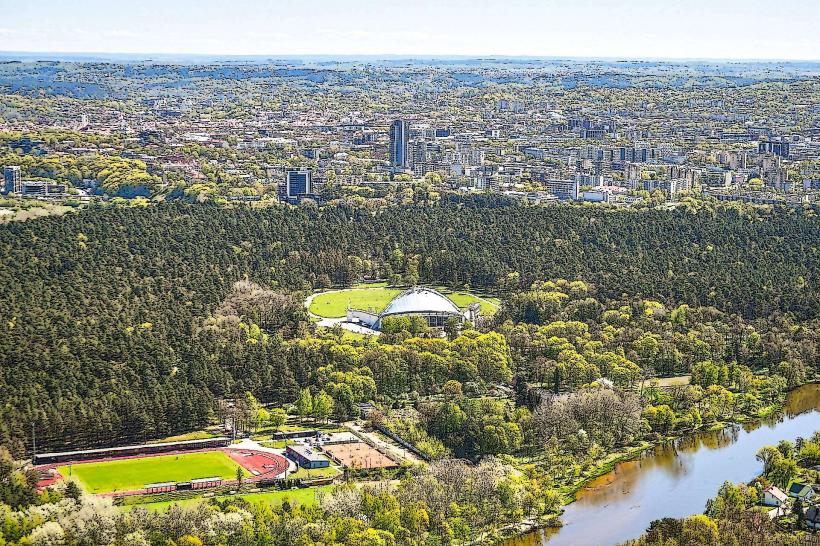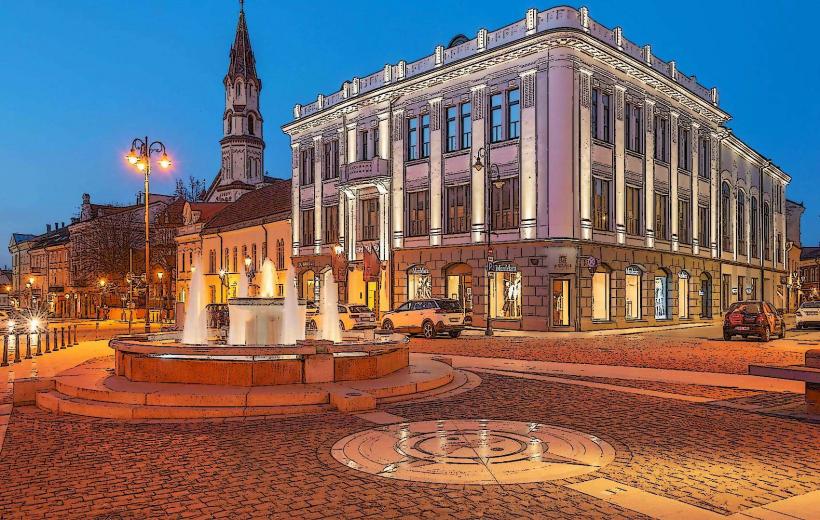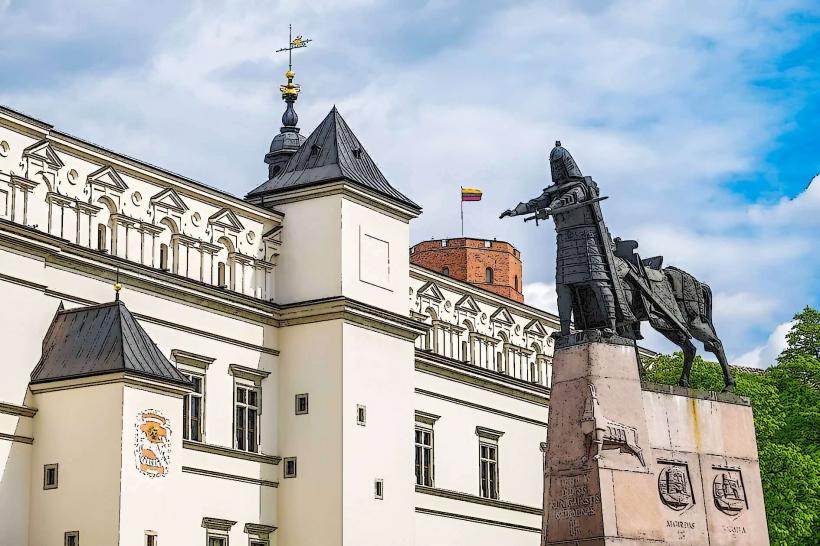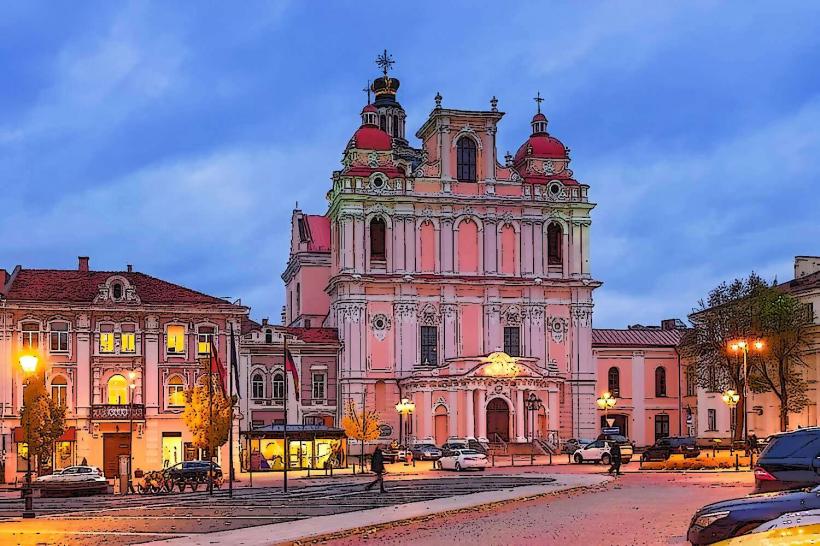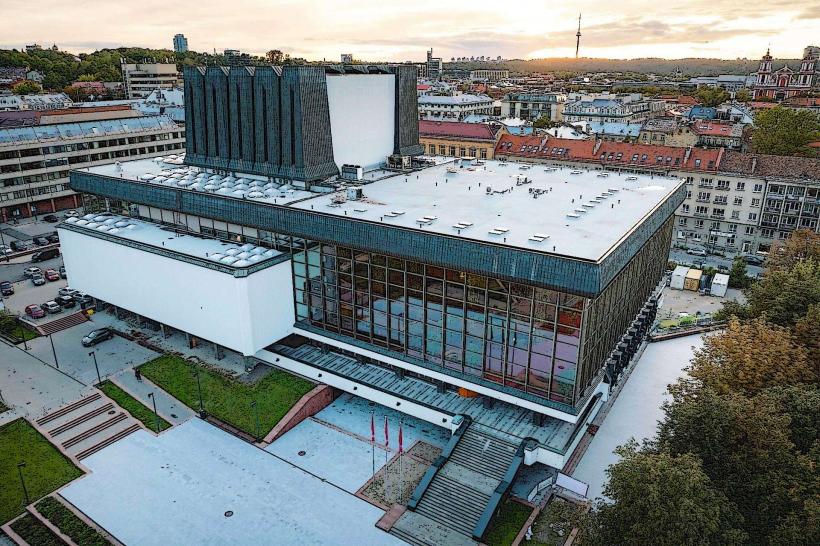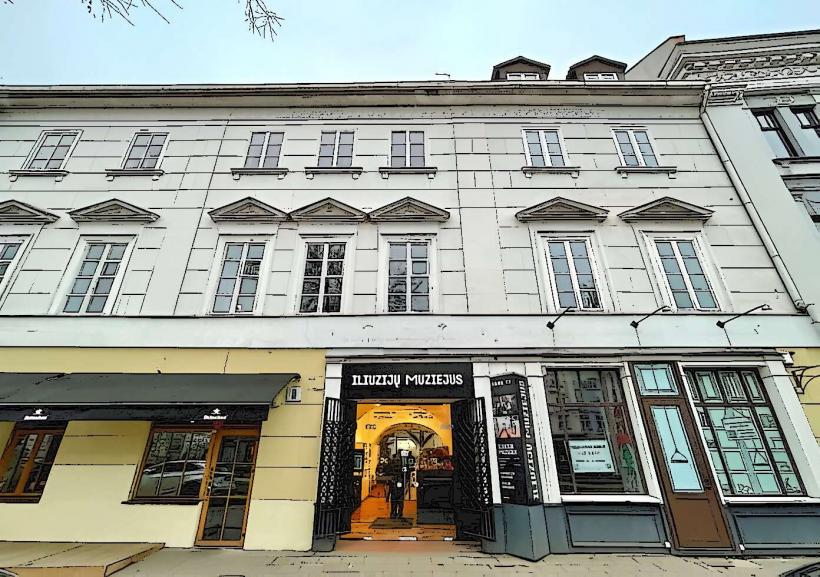Information
Landmark: Vilnius Old TownCity: Vilnius
Country: Lithuania
Continent: Europe
Vilnius Old Town (Senamiestis) is one of the largest and best-preserved medieval old towns in Europe, recognized as a UNESCO World Heritage site since 1994. It reflects the rich cultural, historical, and architectural history of Lithuania, shaped by various influences over the centuries. Here’s a detailed look at the area:
1. History
Vilnius was first mentioned in historical records in 1323, when it became the capital of the Grand Duchy of Lithuania. The Old Town grew around the Vilnia River, and its development reflects the city’s evolution from a medieval settlement to a vibrant urban center. Over the centuries, it has been influenced by Gothic, Renaissance, Baroque, and Classical architecture due to its diverse history, including Polish, Jewish, and Russian influences.
2. Architectural Highlights
The Old Town is a blend of various architectural styles, including Gothic, Renaissance, and Baroque. Some key buildings and features include:
- Vilnius Cathedral: This neoclassical cathedral, with its impressive columns and grand façade, has been the spiritual heart of the city since the 13th century. It houses the tombs of Lithuanian kings and other important figures.
- Gothic Architecture: Examples include the St. Anne's Church, a strikingly beautiful Gothic structure with red brick walls and intricate detailing. Another example is the Bernardine Monastery, a mix of Gothic and Renaissance styles.
- Baroque Style: The St. Peter and Paul Church is one of the finest examples of Baroque architecture in Vilnius, featuring an ornate interior with over 2,000 stucco figures.
- Renaissance Influence: The Palace of the Grand Dukes of Lithuania, once the residence of Lithuanian monarchs, was reconstructed in the 21st century to reflect its Renaissance origins.
3. Cultural Landmarks
- The Gates of Dawn (Aušros Vartai): A historic gate dating back to the 16th century, it houses a revered icon of the Virgin Mary, and pilgrims from across Europe visit it. It’s one of the few remnants of the old city walls.
- Vilnius University: Founded in 1579, it is one of the oldest universities in Eastern Europe. The university’s architecture is a mix of Renaissance and Baroque styles, and it includes beautiful courtyards and historical buildings.
- The Presidential Palace: The residence of the President of Lithuania, this neoclassical building was originally the residence of the bishops of Vilnius.
4. The Jewish Heritage
Vilnius was once known as the “Jerusalem of the North” due to its large and influential Jewish community. Though many of the synagogues were destroyed during World War II, remnants of Jewish heritage remain, such as:
- The Vilna Gaon Jewish State Museum, which highlights the history and culture of Jewish Vilnius before the war.
- The Jewish Quarter, which once housed many synagogues, yeshivas, and Jewish businesses. Some old Jewish buildings still stand, offering insight into the city’s Jewish history.
5. Narrow Streets and Courtyards
The Old Town’s streets are narrow and winding, designed for pedestrians. Many of the buildings are adorned with intricate facades and balconies, and hidden courtyards are scattered throughout the district. The Pilies Street is the main thoroughfare, lined with shops, cafés, and galleries. It leads to key landmarks and connects various parts of the Old Town.
6. Modern Life in the Old Town
Today, the Old Town is a lively, modern area with restaurants, shops, hotels, and cultural venues. The combination of historical landmarks and contemporary life creates a unique atmosphere where tradition and innovation coexist. Visitors can enjoy traditional Lithuanian cuisine in local taverns or explore boutique stores and galleries.
7. Tourist Attractions
- Uzupis District: Known for its bohemian spirit, this small neighborhood within the Old Town declared itself an independent republic in 1997, complete with a constitution. It has a vibrant arts scene, cafes, and the famous Uzupis Angel statue.
- Vilnius Castle Complex: Located on a hill, this historical complex includes the Gediminas Tower, which offers stunning views of the city. The complex once served as the main defense of the city.
8. Events and Festivals
The Old Town is also the center of many cultural events throughout the year, including festivals, concerts, and street performances. It is particularly busy during the Vilnius International Film Festival, the Vilnius Festival (classical music), and Lithuanian Independence Day celebrations.
Conclusion
Vilnius Old Town is a historical treasure that offers a unique blend of architectural beauty, rich culture, and a living, breathing urban environment. With its narrow cobblestone streets, elegant squares, and diverse history, it is a place that transports visitors through time, making it one of the most fascinating old towns in Europe.

